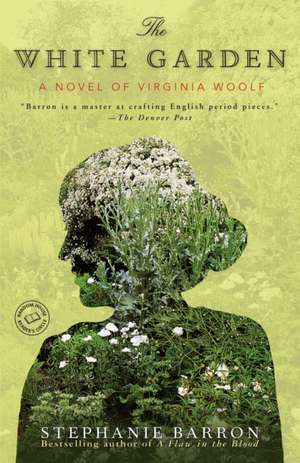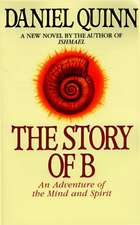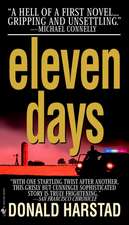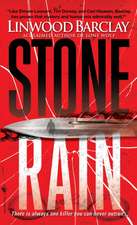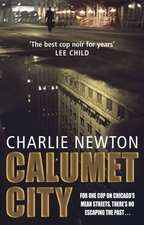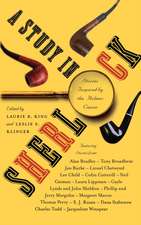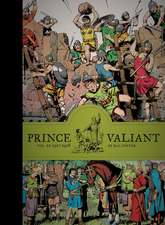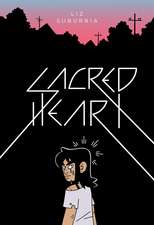The White Garden: A Novel of Virginia Woolf: Random House Reader's Circle
Autor Stephanie Barronen Limba Engleză Paperback – 31 aug 2009
Six decades after Virginia Woolf’s death, landscape designer Jo Bellamy has come to Sissinghurst Castle for two reasons: to study the celebrated White Garden created by Woolf’s lover Vita Sackville-West and to recover from the terrible wound of her grandfather’s unexplained suicide. In the shadow of one of England’s most famous castles, Jo makes a shocking find: Woolf’s last diary, its first entry dated the day after she allegedly killed herself.
If authenticated, Jo’s discovery could shatter everything historians believe about Woolf’s final hours. But when the Woolf diary is suddenly stolen, Jo’s quest to uncover the truth will lead her on a perilous journey into the tumultuous inner life of a literary icon whose connection to the White Garden ultimately proved devastating.
Rich with historical detail, The White Garden is an enthralling novel of literary suspense that explores the many ways the past haunts the present–and the dark secrets that lurk beneath the surface of the most carefully tended garden.
Din seria Random House Reader's Circle
-
 Preț: 107.68 lei
Preț: 107.68 lei -
 Preț: 100.16 lei
Preț: 100.16 lei -
 Preț: 111.14 lei
Preț: 111.14 lei -
 Preț: 111.29 lei
Preț: 111.29 lei -
 Preț: 108.72 lei
Preț: 108.72 lei -
 Preț: 139.68 lei
Preț: 139.68 lei -
 Preț: 131.94 lei
Preț: 131.94 lei -
 Preț: 57.77 lei
Preț: 57.77 lei -
 Preț: 100.83 lei
Preț: 100.83 lei -
 Preț: 95.48 lei
Preț: 95.48 lei -
 Preț: 98.78 lei
Preț: 98.78 lei -
 Preț: 103.03 lei
Preț: 103.03 lei -
 Preț: 128.86 lei
Preț: 128.86 lei -
 Preț: 81.80 lei
Preț: 81.80 lei -
 Preț: 128.64 lei
Preț: 128.64 lei -
 Preț: 74.62 lei
Preț: 74.62 lei -
 Preț: 120.71 lei
Preț: 120.71 lei -
 Preț: 106.04 lei
Preț: 106.04 lei -
 Preț: 65.10 lei
Preț: 65.10 lei -
 Preț: 125.84 lei
Preț: 125.84 lei -
 Preț: 119.55 lei
Preț: 119.55 lei -
 Preț: 106.42 lei
Preț: 106.42 lei -
 Preț: 128.33 lei
Preț: 128.33 lei -
 Preț: 128.02 lei
Preț: 128.02 lei -
 Preț: 115.49 lei
Preț: 115.49 lei -
 Preț: 122.14 lei
Preț: 122.14 lei -
 Preț: 105.22 lei
Preț: 105.22 lei -
 Preț: 94.23 lei
Preț: 94.23 lei -
 Preț: 102.86 lei
Preț: 102.86 lei -
 Preț: 103.44 lei
Preț: 103.44 lei -
 Preț: 108.90 lei
Preț: 108.90 lei -
 Preț: 115.34 lei
Preț: 115.34 lei -
 Preț: 116.76 lei
Preț: 116.76 lei -
 Preț: 124.72 lei
Preț: 124.72 lei -
 Preț: 159.17 lei
Preț: 159.17 lei -
 Preț: 91.55 lei
Preț: 91.55 lei -
 Preț: 104.59 lei
Preț: 104.59 lei -
 Preț: 105.41 lei
Preț: 105.41 lei -
 Preț: 104.66 lei
Preț: 104.66 lei -
 Preț: 117.80 lei
Preț: 117.80 lei -
 Preț: 90.64 lei
Preț: 90.64 lei -
 Preț: 104.81 lei
Preț: 104.81 lei -
 Preț: 108.50 lei
Preț: 108.50 lei -
 Preț: 120.26 lei
Preț: 120.26 lei -
 Preț: 98.21 lei
Preț: 98.21 lei -
 Preț: 111.76 lei
Preț: 111.76 lei -
 Preț: 135.15 lei
Preț: 135.15 lei -
 Preț: 122.45 lei
Preț: 122.45 lei -
 Preț: 139.15 lei
Preț: 139.15 lei
Preț: 117.39 lei
Nou
Puncte Express: 176
Preț estimativ în valută:
22.47€ • 24.39$ • 18.87£
22.47€ • 24.39$ • 18.87£
Carte disponibilă
Livrare economică 01-15 aprilie
Preluare comenzi: 021 569.72.76
Specificații
ISBN-13: 9780553385779
ISBN-10: 0553385771
Pagini: 326
Dimensiuni: 135 x 203 x 19 mm
Greutate: 0.25 kg
Editura: Bantam Books
Seria Random House Reader's Circle
ISBN-10: 0553385771
Pagini: 326
Dimensiuni: 135 x 203 x 19 mm
Greutate: 0.25 kg
Editura: Bantam Books
Seria Random House Reader's Circle
Notă biografică
Stephanie Barron is the author of nine bestselling Jane Austen mysteries. She lives near Denver, Colorado.
Extras
Chapter One
October 2008 Kent, England Jo Bellamy eased her rental car cautiously into the Slip Road roundabout, every fiber of her body braced for the shuddering crash that must surely come, and when it didn’t—when the circular bit of carriageway remained miraculously free of maddened English drivers on this late October morning—she darted a glance in the wrong direction, cursed softly, then searched over her left shoulder for the first available exit from this particular rung of hell. She was looking for something called the A262, which ought to lead straight to the castle, but after an hour and a half of descending from London’s Victoria Embankment through the Blackwall Tunnel, not to mention Margate and Maidstone, her patience was frayed and her calf muscles cramped. She was a brown-haired, crinkle-eyed American woman, thirty-four years of age, and this was her first visit to England—which sufficed to say that she had never driven on the left side of the road before. She had particularly never driven a stick-shift transmission on the left, and both her feet and her hands were disobeying her rational mind’s orders. She had stalled twice, clipped the left side of the car with an errant curb (or kerb, as they insisted on spelling it here), and was desperate for a stiff drink, although it was only eleven o’clock in the morning. If she did not find the castle soon, she intended to drive the darling little Mini straight into one of the massive oaks that lined the carriageway, and walk to Sissinghurst.
And then, quite suddenly, the tower rose up from the sheep pastures and tilled fields and she felt her pent-up breath exhale slowly from her lungs.
For years she had read about Sissinghurst, in textbooks, magazines, and glossy coffee-table volumes her grandmother kept in her small house back in the Delaware Valley. She’d known what to expect: Elizabethan tower of rosy brick, rising some five stories with a weather vane on top, lapped by the burnished farmland and woods named the Weald of Kent, or what remained of it. The tower was almost derelict when the Nicolson family bought it in 1930, and they had set about clearing the weeds and neglected cottages at the tower’s foot until a courtyard and a clutch of buildings remained. These they knit into a minor paradise with a series of gardens, as though tower, cottages, sweep of lawn, and surviving moat were a single house, half of it exposed to sunlight and rain. The Nicolsons took their meals in one room (outdoors) and made their beds in others; but the tower had been the sole province of Mrs. Nicolson: Vita Sackville-West, the writer.
Jo frowned at her choice of words as she steered the Mini recklessly into the National Trust car park. The writer was one way to describe Vita Sackville-West, but the gardener was another. The woman had written about gardening as much as anything else, because the act of plunging her hands into dirt and making things bloom had been as intimate as sex for Vita—and she always wrote about what was most intensely intimate, including sex. She had had a good deal of that in her lifetime, with both men and women, and for this, too, she and Sissinghurst were famous. The castle was a place where genius and wild beauty were cultivated, a proving ground of eccentrics, and as Jo stopped in her tracks to stare at Vita’s tower, gazing raptly upward, she felt suddenly and profoundly unworthy. Ordinary. A visitor.
God help her, an American.
No, she told herself firmly. You’re a gardener. She braced her shoulders and strode in the direction of the nursery greenhouses, her shoes scuffing the gravel.
Imogen Cantwell had forgotten that the woman was coming. It was Thursday, which meant the garden was closed to visitors, and the equivalent of a Friday Tidy was under way all over the plots of Sissinghurst—the Purple Border in the Top Courtyard dwindling now that it was October to a few shafts of cardoons and late dahlias, her staff busy mowing the grass paths along the Moat Walk. She herself was examining the ratio of rose hips to lingering blossoms in the Rose Garden, her eye wandering inevitably through the Yew Rondel toward the statue of a bacchante in the Lime Walk, one of Sissinghurst’s glories. She found it impossible to keep her mind on work—the air was delicious, and the fact that it was a Closed Day meant that she had the garden to herself. No hordes of motor coaches lining up in the lower car park to disgorge a portentous group of elderly Garden Club enthusiasts, many of whom had been coming to Sissinghurst for forty years and felt entitled to inform the Head Gardener (as Imogen was) of the atrocities they felt had been committed in the name of Progress—some of whom, indeed, had actually known dear Vita as they chummily called her, or worse yet, Pam and Sibylle, the previous pair of Head Gardeners. It was complete bliss to be left to herself to contemplate the art she had grown and nurtured, and she felt a surge of grumpy ire at the sight of the unknown brown-haired woman moving purposefully toward her from the Powys Wall, her stride occasionally faltering as she plunged her nose deep into some remarkable specimen—the Hybrid Musk Vanity or Pax, each remontant in autumn. Vita had loved and collected old roses, most of which bloomed only in midsummer; the garden was a trifle thin by now, but still felt right. As it should. Except for this stranger drifting down the central axis—
“Bloody hell,” Imogen said aloud, and stumped forward to block the interloper, this canker in the rose of her day.
“Ms. Cantwell?”
An American. Of course. Americans never respected Closed signs; it was enough that they had flown the Atlantic, that their schedules demanded they visit Kent on a Thursday, for them to presume that Closed meant Except For You. This one did not look the type to wave a fifty-pound note under the Head Gardener’s nose, as a special plea for admittance, but one never knew. The functional Merrells and the corduroy jeans, the light cardigan and the hair cinched with elastic, might be merely the protective cover of a rapacious hunter, the kind that snatched cuttings of Sissinghurst flowers and smuggled them home in her Vuitton suitcase. Imogen prepared to be at her most British, her vowels forming plummily even before she uttered them, her Lancashire childhood receding before the Enemy.
“I’m dreadfully sorry, but actually the garden is closed on Thursdays for general maintenance. How did you happen to get in, I wonder?”
The woman looked bewildered. “I was told to stop at the Head Gardener’s office, down by the service area, and one of those people sent me over here. Is Ms. Cantwell around? My name is Jo Bellamy. We were supposed to meet this morning.”
“Bugger,” Imogen said, in two short, explosive syllables. “Of course we were! Forgive me, Miss Bellamy—I’m in full-blown menopause at the moment and my mind is a treacherous sieve. You wanted to see the White Garden, am I correct?”
“Yes. If it’s okay. If I’m not—”
“People always do,” Imogen said briskly. “I’ll wager it’s the most admired bit of ground in Europe, and the most copied—although rarely with success. That’s why you’re here, isn’t it?”
It was all coming back, now, as she swung into the Yew Walk—which was heavily shaded, claustrophobic and narrow, like some sort of Gothic tunnel to the Underworld, so that Jo Bellamy fell into step behind her rather than attempting to walk abreast. Imogen had received an email from the woman in September, with a request that was tediously common: some rich client in New York with pretensions to Olde World Grandeur had decided she must have the White Garden in her backyard, and had sent Jo—who claimed respectable-enough credentials, a degree from the School of Professional Horticulture at the New York Botanic Gardens, an M.A. from Longwood—to study Sissinghurst and carry it wholesale back to the potato fields of Long Island. Infuriating and pathetic, as all Garden Plagiarism must be, but not particularly against the law. Imogen usually presented a quelling façade of unwillingness that the humble supplicant from Abroad was forced to overcome, inch by inch; relenting at last, and granting access to the Inner Sanctum—the closely guarded cultivation secrets, handed down from Vita to Pam to Sibylle to Imogen—only after a substantial but sub rosa donation was tendered to the National Trust, earmarked for the preservation of Sissinghurst Castle Garden. Jo Bellamy had jumped through these hoops intrepidly, on behalf of an unknown Mrs. Graydon Westlake, of East Hampton; she had written intelligently of cultivation standards and soil composition in New York; she had even invoked her English grandfather, a Kentishman. And Imogen had made this appointment she promptly forgot.
A sudden break in the yew, a bright doorway of sunlight; the Lower Courtyard, flashing past. The end of the walk loomed. She turned left through a second gap in the yew, into the dazzling flood of the White Garden, and stopped short abruptly.
She could feel the American standing wordlessly behind her. Neither of them spoke for an instant. Then Imogen said, “It’s a bit past its prime, this time of year. Although still lovely, of course.” And regretted the words as soon as they were spoken. The British recognized self-deprecation for the subtle pride it was. Americans always mistook it for lack of confidence. And the White Garden had no reason to apologize.
A large rectangular space divided into two parts by a crossing of main paths, and a rose arbor in the center. To the left, a quartering of beds, filled to bursting with every conceivable arrangement of white and silver flowers; to the right, a boxwood parterre, severe and formal, its lines relieved by the lushness of its plantings. Jo Bellamy walked tentatively forward on the path, her eyes searching the beds. “Is that John Huxtable?” she asked, her gaze fixed on the clematis engulfing a pillar. “You must cut it back hard, each spring, to make it bloom so late.”
October 2008 Kent, England Jo Bellamy eased her rental car cautiously into the Slip Road roundabout, every fiber of her body braced for the shuddering crash that must surely come, and when it didn’t—when the circular bit of carriageway remained miraculously free of maddened English drivers on this late October morning—she darted a glance in the wrong direction, cursed softly, then searched over her left shoulder for the first available exit from this particular rung of hell. She was looking for something called the A262, which ought to lead straight to the castle, but after an hour and a half of descending from London’s Victoria Embankment through the Blackwall Tunnel, not to mention Margate and Maidstone, her patience was frayed and her calf muscles cramped. She was a brown-haired, crinkle-eyed American woman, thirty-four years of age, and this was her first visit to England—which sufficed to say that she had never driven on the left side of the road before. She had particularly never driven a stick-shift transmission on the left, and both her feet and her hands were disobeying her rational mind’s orders. She had stalled twice, clipped the left side of the car with an errant curb (or kerb, as they insisted on spelling it here), and was desperate for a stiff drink, although it was only eleven o’clock in the morning. If she did not find the castle soon, she intended to drive the darling little Mini straight into one of the massive oaks that lined the carriageway, and walk to Sissinghurst.
And then, quite suddenly, the tower rose up from the sheep pastures and tilled fields and she felt her pent-up breath exhale slowly from her lungs.
For years she had read about Sissinghurst, in textbooks, magazines, and glossy coffee-table volumes her grandmother kept in her small house back in the Delaware Valley. She’d known what to expect: Elizabethan tower of rosy brick, rising some five stories with a weather vane on top, lapped by the burnished farmland and woods named the Weald of Kent, or what remained of it. The tower was almost derelict when the Nicolson family bought it in 1930, and they had set about clearing the weeds and neglected cottages at the tower’s foot until a courtyard and a clutch of buildings remained. These they knit into a minor paradise with a series of gardens, as though tower, cottages, sweep of lawn, and surviving moat were a single house, half of it exposed to sunlight and rain. The Nicolsons took their meals in one room (outdoors) and made their beds in others; but the tower had been the sole province of Mrs. Nicolson: Vita Sackville-West, the writer.
Jo frowned at her choice of words as she steered the Mini recklessly into the National Trust car park. The writer was one way to describe Vita Sackville-West, but the gardener was another. The woman had written about gardening as much as anything else, because the act of plunging her hands into dirt and making things bloom had been as intimate as sex for Vita—and she always wrote about what was most intensely intimate, including sex. She had had a good deal of that in her lifetime, with both men and women, and for this, too, she and Sissinghurst were famous. The castle was a place where genius and wild beauty were cultivated, a proving ground of eccentrics, and as Jo stopped in her tracks to stare at Vita’s tower, gazing raptly upward, she felt suddenly and profoundly unworthy. Ordinary. A visitor.
God help her, an American.
No, she told herself firmly. You’re a gardener. She braced her shoulders and strode in the direction of the nursery greenhouses, her shoes scuffing the gravel.
Imogen Cantwell had forgotten that the woman was coming. It was Thursday, which meant the garden was closed to visitors, and the equivalent of a Friday Tidy was under way all over the plots of Sissinghurst—the Purple Border in the Top Courtyard dwindling now that it was October to a few shafts of cardoons and late dahlias, her staff busy mowing the grass paths along the Moat Walk. She herself was examining the ratio of rose hips to lingering blossoms in the Rose Garden, her eye wandering inevitably through the Yew Rondel toward the statue of a bacchante in the Lime Walk, one of Sissinghurst’s glories. She found it impossible to keep her mind on work—the air was delicious, and the fact that it was a Closed Day meant that she had the garden to herself. No hordes of motor coaches lining up in the lower car park to disgorge a portentous group of elderly Garden Club enthusiasts, many of whom had been coming to Sissinghurst for forty years and felt entitled to inform the Head Gardener (as Imogen was) of the atrocities they felt had been committed in the name of Progress—some of whom, indeed, had actually known dear Vita as they chummily called her, or worse yet, Pam and Sibylle, the previous pair of Head Gardeners. It was complete bliss to be left to herself to contemplate the art she had grown and nurtured, and she felt a surge of grumpy ire at the sight of the unknown brown-haired woman moving purposefully toward her from the Powys Wall, her stride occasionally faltering as she plunged her nose deep into some remarkable specimen—the Hybrid Musk Vanity or Pax, each remontant in autumn. Vita had loved and collected old roses, most of which bloomed only in midsummer; the garden was a trifle thin by now, but still felt right. As it should. Except for this stranger drifting down the central axis—
“Bloody hell,” Imogen said aloud, and stumped forward to block the interloper, this canker in the rose of her day.
“Ms. Cantwell?”
An American. Of course. Americans never respected Closed signs; it was enough that they had flown the Atlantic, that their schedules demanded they visit Kent on a Thursday, for them to presume that Closed meant Except For You. This one did not look the type to wave a fifty-pound note under the Head Gardener’s nose, as a special plea for admittance, but one never knew. The functional Merrells and the corduroy jeans, the light cardigan and the hair cinched with elastic, might be merely the protective cover of a rapacious hunter, the kind that snatched cuttings of Sissinghurst flowers and smuggled them home in her Vuitton suitcase. Imogen prepared to be at her most British, her vowels forming plummily even before she uttered them, her Lancashire childhood receding before the Enemy.
“I’m dreadfully sorry, but actually the garden is closed on Thursdays for general maintenance. How did you happen to get in, I wonder?”
The woman looked bewildered. “I was told to stop at the Head Gardener’s office, down by the service area, and one of those people sent me over here. Is Ms. Cantwell around? My name is Jo Bellamy. We were supposed to meet this morning.”
“Bugger,” Imogen said, in two short, explosive syllables. “Of course we were! Forgive me, Miss Bellamy—I’m in full-blown menopause at the moment and my mind is a treacherous sieve. You wanted to see the White Garden, am I correct?”
“Yes. If it’s okay. If I’m not—”
“People always do,” Imogen said briskly. “I’ll wager it’s the most admired bit of ground in Europe, and the most copied—although rarely with success. That’s why you’re here, isn’t it?”
It was all coming back, now, as she swung into the Yew Walk—which was heavily shaded, claustrophobic and narrow, like some sort of Gothic tunnel to the Underworld, so that Jo Bellamy fell into step behind her rather than attempting to walk abreast. Imogen had received an email from the woman in September, with a request that was tediously common: some rich client in New York with pretensions to Olde World Grandeur had decided she must have the White Garden in her backyard, and had sent Jo—who claimed respectable-enough credentials, a degree from the School of Professional Horticulture at the New York Botanic Gardens, an M.A. from Longwood—to study Sissinghurst and carry it wholesale back to the potato fields of Long Island. Infuriating and pathetic, as all Garden Plagiarism must be, but not particularly against the law. Imogen usually presented a quelling façade of unwillingness that the humble supplicant from Abroad was forced to overcome, inch by inch; relenting at last, and granting access to the Inner Sanctum—the closely guarded cultivation secrets, handed down from Vita to Pam to Sibylle to Imogen—only after a substantial but sub rosa donation was tendered to the National Trust, earmarked for the preservation of Sissinghurst Castle Garden. Jo Bellamy had jumped through these hoops intrepidly, on behalf of an unknown Mrs. Graydon Westlake, of East Hampton; she had written intelligently of cultivation standards and soil composition in New York; she had even invoked her English grandfather, a Kentishman. And Imogen had made this appointment she promptly forgot.
A sudden break in the yew, a bright doorway of sunlight; the Lower Courtyard, flashing past. The end of the walk loomed. She turned left through a second gap in the yew, into the dazzling flood of the White Garden, and stopped short abruptly.
She could feel the American standing wordlessly behind her. Neither of them spoke for an instant. Then Imogen said, “It’s a bit past its prime, this time of year. Although still lovely, of course.” And regretted the words as soon as they were spoken. The British recognized self-deprecation for the subtle pride it was. Americans always mistook it for lack of confidence. And the White Garden had no reason to apologize.
A large rectangular space divided into two parts by a crossing of main paths, and a rose arbor in the center. To the left, a quartering of beds, filled to bursting with every conceivable arrangement of white and silver flowers; to the right, a boxwood parterre, severe and formal, its lines relieved by the lushness of its plantings. Jo Bellamy walked tentatively forward on the path, her eyes searching the beds. “Is that John Huxtable?” she asked, her gaze fixed on the clematis engulfing a pillar. “You must cut it back hard, each spring, to make it bloom so late.”
Recenzii
“Barron is a master at crafting English period pieces.”—Denver Post
“The White Garden grows an intriguing tale, weaving together the tendrils of past and present, growth and corruption, love and despair, into a landscape of hope. This is a mystery in a garden: a garden in war; a garden beset by modernity; a ghostly white garden haunted by the dead.” —Laurie R. King, author of The Language of Bees
“Stephanie Barron has concocted a delicious exploration of what could have happened to Virginia Woolf in the weeks between her disappearance and the day her body floated to the surface of the river Ouse. Part mystery, part a search for redemption, The White Garden will entrance readers from the moment they open it.” —Tasha Alexander, author of And Only to Deceive
“The White Garden grows an intriguing tale, weaving together the tendrils of past and present, growth and corruption, love and despair, into a landscape of hope. This is a mystery in a garden: a garden in war; a garden beset by modernity; a ghostly white garden haunted by the dead.” —Laurie R. King, author of The Language of Bees
“Stephanie Barron has concocted a delicious exploration of what could have happened to Virginia Woolf in the weeks between her disappearance and the day her body floated to the surface of the river Ouse. Part mystery, part a search for redemption, The White Garden will entrance readers from the moment they open it.” —Tasha Alexander, author of And Only to Deceive
Descriere
In 1941, Virginia Woolf drowns herself. Only now is the truth about her death beginning to emerge. The bestselling author of acclaimed historical mystery novels unveils a startling tale about what lies beneath the surface.
